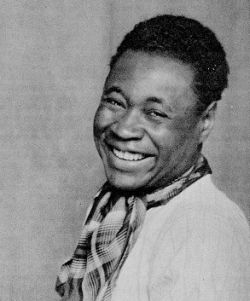 Claude McKay was an Afro-Caribbean poet and a major figure of the Harlem Renaissance and I recently found myself marveling at his "The Tropics of New York." You cannot tell from this work, but his writing was often in his native dialect, which was considering a lesser form of English. His work is similar to that of Robert Burns, who too wrote in a looked-down upon dialect. Unlike Burns, McKay had to deal with crippling racism, since so many white elites were not interested in the writing of a man of color.
Claude McKay was an Afro-Caribbean poet and a major figure of the Harlem Renaissance and I recently found myself marveling at his "The Tropics of New York." You cannot tell from this work, but his writing was often in his native dialect, which was considering a lesser form of English. His work is similar to that of Robert Burns, who too wrote in a looked-down upon dialect. Unlike Burns, McKay had to deal with crippling racism, since so many white elites were not interested in the writing of a man of color.
"The Tropics of New York" begins describing "exotic" fruit, and the reader is lead to wonder if the speaker is in Jamaica, McKay's birth country. At the end of the first stanza, McKay reveals that this fruit is for sale for a high price, drawing the connection between the fetishistic aspects of American life on other places and people and capitalism. This poem may be about fruit, but the fruit stands in place of his island home that is misrepresented and exploited by racist and colonial cultural and economic forces. The second stanza of the poem is McKay's authentic version of Jamaica, one that is sacred, as obvious by his use of the words "benediction" and "nun-like." The third stanza expresses his homesickness and reminds readers that New York's version of the tropics is not the true tropics and will only make his or her longing worse.
No comments:
Post a Comment